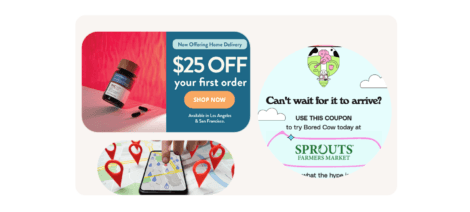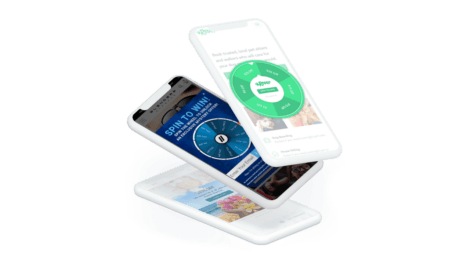Data is key to making great decisions in e-commerce. If you have the right information, you can make the right choices for both you and your customers.
That means it’s critical to collect the right data about your website visitors. Knowing what data to collect and how to use it, is the key to growing your e-commerce business and giving customers the best experience possible.
In this blog, we’ll tell you exactly what information about your website visitors you should look for, so you feel empowered to make decisions, effortlessly.
Let’s get into it!
#1 How Website Visitors Spend Time On Your Website
Learn more about how your website visitors experience your site by mapping their time. This way you’ll know exactly how they use your site from when they scroll, how much time they spend on each page, and how they use their cursor.
You can do this by installing a tracking code on your website and carefully analyze the results to understand user psychology.
Why Is This Of Value?
Knowing which sections of your website visitors are spending the most time on will help you pinpoint what to amplify about your site and what to eliminate. You’ll be able to make the following decisions:
- Modify your user experience to make it visually appealing to visitors.
- Create content that website visitors genuinely enjoy reading.
- Add products to your e-commerce website that sell and eliminate those that don’t.
- Analyze bounce rates and be able to control them.
Some of this behavior can also be analyzed in your Justuno account by looking at the Website & CRO dashboard. You can review performance by channel and page for insights in your reports along with many other breakdowns.
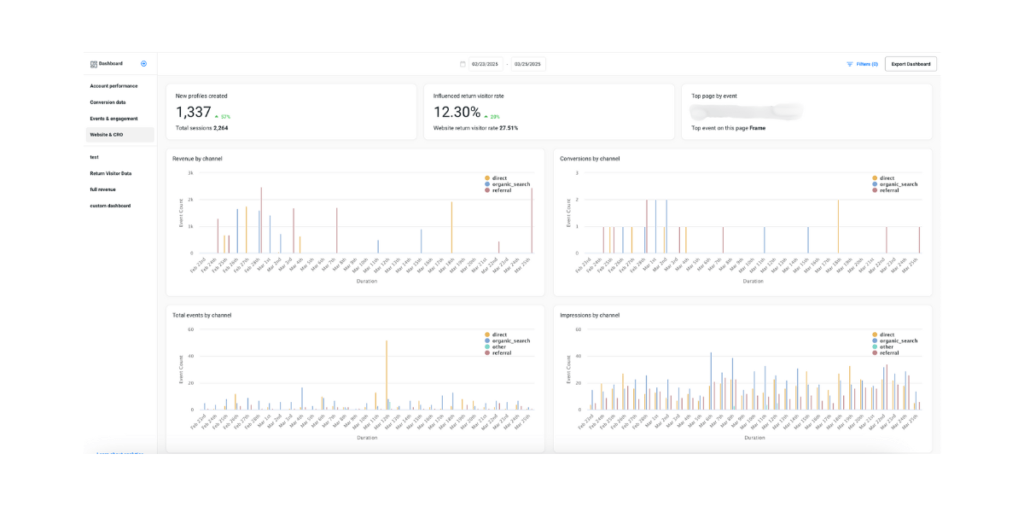
But if you want to take this a step further you’ll need to use a heatmap tool to collect this sort of information. Justuno customers use Lucky Orange to review how their pop-ups perform in tandem with heatmaps.
Lucky Orange helps you understand why your visitors do what they do. With features like Dynamic Heatmaps, you can see how users move through your site—whether they’re engaging with drop-down menus or searching for products.
Justuno lets you translate insights into action with on-page tactics like pop-ups, quizzes, product recommendations and other embedded experiences. Want to offer a quiz that engages your visitors and provide a perfectly timed discount? Justuno makes that possible.
See how our customer, SoDanca, has theirs set up.
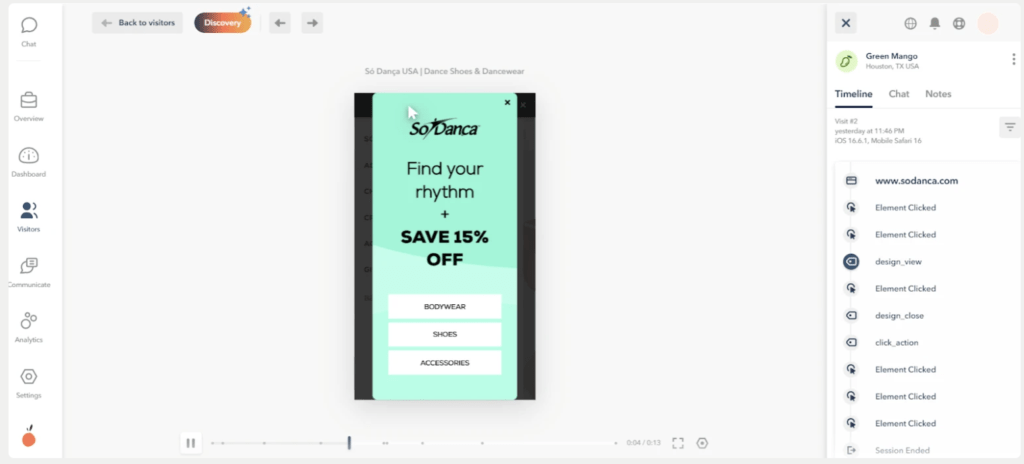
#2 Conversion Actions
Being an e-commerce business, one of the essential website visitor metrics for you to track are conversion rates. Running an e-commerce business is like running a retail store, if you’re not converting visitors into subscribers or customers, you’re wasting your time!
You need to define what ‘conversion’ means to your business. We suggest that you use the following website events as your conversion types:
- Email Subscriber Rates: All website visitors who sign up for receiving your email newsletters should be monitored and managed. You need to collect information about who’s subscribing to your newsletters, how many website visitors are becoming subscribers, and why they are your subscribers. Accumulating this information can be a compelling way of building an online community whose needs your website caters to.
- SMS Subscriber Rates: Similar to the email subscribers above, you’ll want to monitor those who sign up for SMS as those are likely your highest-intent newbies.
- Website Sales: Collecting information on your sales figures: who’s buying, when they’re buying and why they’re buying, or why they’re not buying can be a great catalyst for growing sales.
- Inquiry Form Submissions: Another metric you should track very closely is your inquiry form submissions. It’s the most direct and easy way of collecting information from your users. Create information fields that will be of value to you, and make them mandatory, so customers leave the information you need.
Review all of these metrics in your Justuno account under the Conversion Data Dashboard & Account Performance.
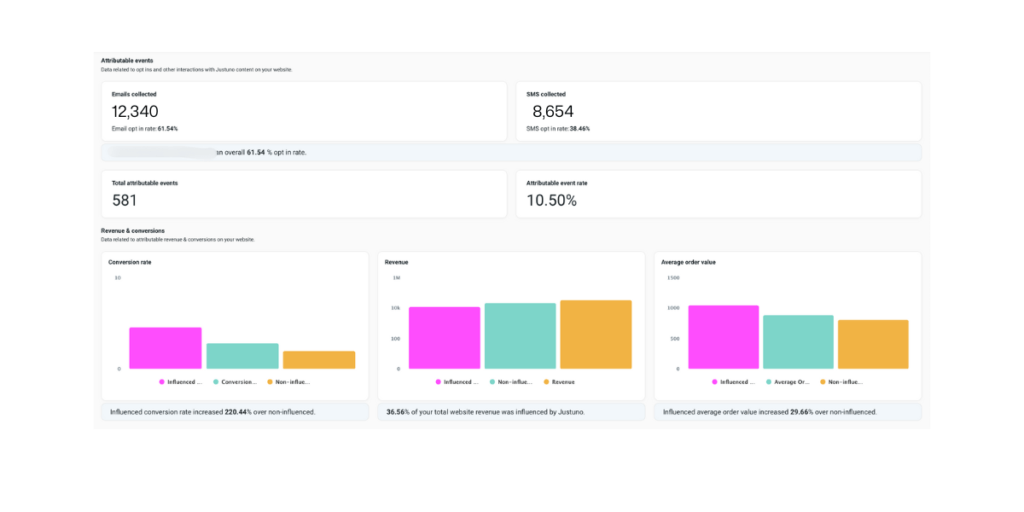
#3: What Your Website Visitors Don’t Like
You should actively seek feedback from your website visitors so you can know what needs improvement. If you’re wondering how you can collect valuable user feedback, there are a variety of ways you can do it, such as:
- Website Surveys: Websites that are seriously interested in feedback let users leave ratings or written submissions. You can have a survey for visitors to submit or collect it through social media channels.
- Online Focus Groups or Webinars: You can invite website visitors or existing customers to join a webinar or online focus session where you can ask questions to seek feedback. You’ll be able to interact with your audience actively and know what they really think about you.
- Direct Outreach To Key Segments: If you have a loyalty program or subscription program these VIP customers can be a great source of information & feedback. From future product lines to current shortcomings, your best customers can be your biggest resource.
#4: Any Information That Helps You Personalize The Shopping Experience
All information is important, so if you can collect it and your customers are comfortable submitting it, make sure you’re doing so. Any details about your visitors can help you personalize your site’s shopping experience even more.
This is more than just collecting visitors names to personalize emails; this is collecting zero and first-party data in the form of shopping habits, product preferences, browsed items, traffic source, and more so that you can build holistic visitor profiles.
Pro Tip: Check out our guide to zero and first-party data to get the inside scoop on how brands are collecting and leverage this end-to-end for the customer journey.
Build quizzes using Justuno to collect however many data points you want and create corresponding funnels for every persona. But if you’d prefer to keep this to a more limited data collection approach you can simply ask for a birth date, zip code, or single preference selector for immediate impact.

#5: Website Visitor Demographic Data
Most data analytics software tools, like Google Analytics, will give you deep insights into customer demographic data, like their location, age, gender, etc. Analyzing this information will help you create more in-depth visitor personas, so you can understand the problems they’re trying to solve.
Justuno’s data enrichment feature helps you do this even faster by automatically syncing publicly available data to email addresses as soon as they opt-in on a lead capture.
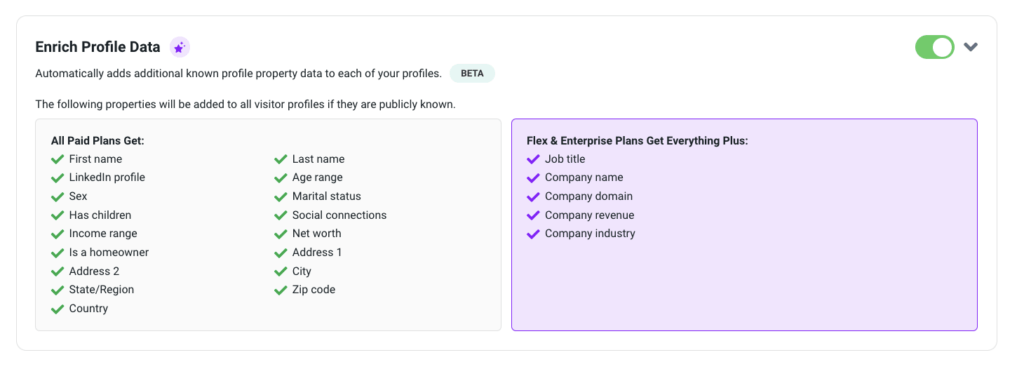
You can not only use this data to segment visitors for a more personalized onsite experience with your Justuno campaigns but you can sync it to your entire MarTech stack to power personalization far beyond your website.

With in-depth demographic data, you’ll be able to segment your customers granularly, ultimately optimizing your ROI from all marketing campaigns.
For instance, if you’re a fashion brand, you could segment shoppers as interested in male or female apparel. Then combine that with advanced geographic data to segment email content based on the subscriber’s local weather trends. Or a food & beverage brand could email subscribers when they’ve been stocked in a store near them finally for improved foot traffic.
Customer Understanding = Growth
Winning the data game isn’t just about collecting data, it’s about knowing what data you should look for and then using it in a way that creates a win-win situation for both you and your customers. Be smart, and almost ‘statistical’ about how you use your data to grow your business intelligently.
Interested in learning more? Book a free conversion audit with our team to see where your website could be doing more with data!


